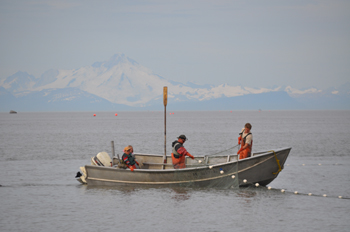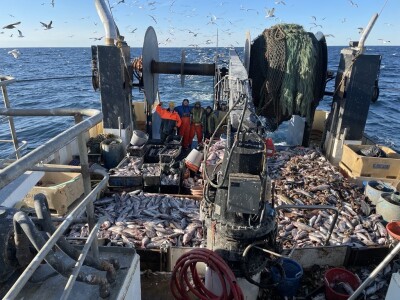There's an epidemic in this country that seems to be spreading faster than a virus — fights over fishing allocation. All across the country, these battles rage on. Many of them have been going for decades, and few of them seem likely to end anytime soon.
In the Gulf of Mexico, sportfishing interests are knocking on the door of snapper-grouper IFQ allocations. The Coastal Conservation Association is pushing to keep the commercial allocation at a benchmark and allow any growth above that benchmark to be weighted in favor of recreational fishing.
The problem with that shift in allocation, as I described in "How is CCA like an oil spill?," is that catch shares work by allowing the rising tide of quota to lift all boats, not just the sporty ones.
The next theater for this fight is in Houston at the Gulf of Mexico Fishery Management Council meeting, Feb. 5 and 6.
This week in Alaska, Cook Inlet setnet fishermen witnessed the predicted next step in their fight against a small minority of guided anglers and fishing-camp owners to keep their fishery from being banned.
The setnetters' opponents would like to ban the gear in urban areas and turn their quota over to sport fishermen, and that's all in the name of conservation. But how is it conservation if the quota simply falls into different hands? For more on this fight, see "Setnets unsnared for now."
But of course, these are just recent examples. And in many cases, the CCA can be found at the bottom of the heap. Let's not forget that Oregon fishermen lost their fishing grounds to sportfishing last year, and that North Carolina commercial fishermen and their supporters just barely beat back yet another fish-grab when the CCA tried to get red drum, spotted sea trout and striped bass designated as game fish.
It's critical for fishermen all over the country to be aware that they are not alone in these fights. Perhaps it will give every corner of the industry some momentum to keep battling. But it's not just fishermen who should care about these fights. We already import more than 90 percent of our seafood. If these fish grabs continue, the choices for consumers will continue to dwindle. Moving quota away from commercial fishermen takes American fish away from the overwhelming majority of American consumers. What happens to the fishermen floats downstream.
Photo: Alaska's Cook Inlet setnetters prefer fishing over fighting; Amy Grannum







